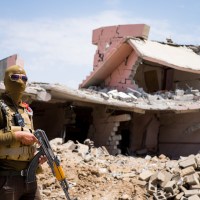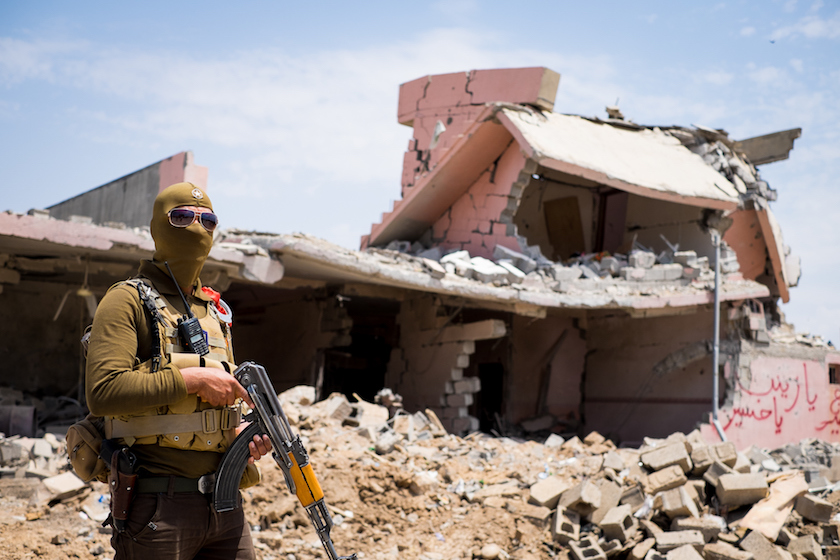On the day that Iraqi Prime Minister Haider al-Abadi announced that the pro-government forces would begin to move into west Mosul, in their attempts to push ISIS out of the city, Abu Maad* took shelter in the basement of his house.
East Mosul, the first half of the city to be liberated, is not as densely populated because many of the buildings there are new and modern. But the battle has now moved to west Mosul where Abu Maad lives—a densely populated old city with narrow alleyways and houses built close together.
The people in west Mosul are almost completely isolated, with no power and no communications. “It was like being in a prison without a guard. Nobody could leave,” Abu Maad says.
“We are so lucky to have a basement,” Abu Maad, 45, said. So he took around 50 members of his extended family into the cellar to live with him until the fighting was over. The cellar was only 970 square feet and sometimes it felt like there was not enough oxygen for everyone.
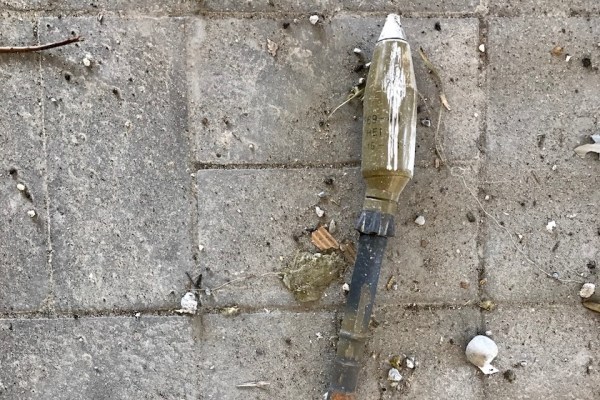
On March 8, fighting neared the house. The basement began to shake from nearby explosions and the families trapped inside could hear guns. Around sunset, an ISIS gunman entered the house and began to fire through the windows at Iraqi military. But he disappeared as quickly as he came, through one of the holes in the wall that ISIS had forced residents to make so that they could pass from house to house unseen by pro-government forces.
A neighbor later told Abu Maad what happened next: An Iraqi soldier in a nearby building had spotted the ISIS sniper in Abu Maad’s house and he radioed for support, saying that his forces were under fire from that house. He gave the coordinates of the building and requested a rocket strike. One of Abu Maad’s neighbors nearby overheard the soldier and told that there were at least 51 civilians hiding in the basement of that house and begged him to cancel the request.
“The soldier tried to cancel the request but it was too late,” Abu Maad says. A rocket hit his home and the entire two-story building was destroyed.
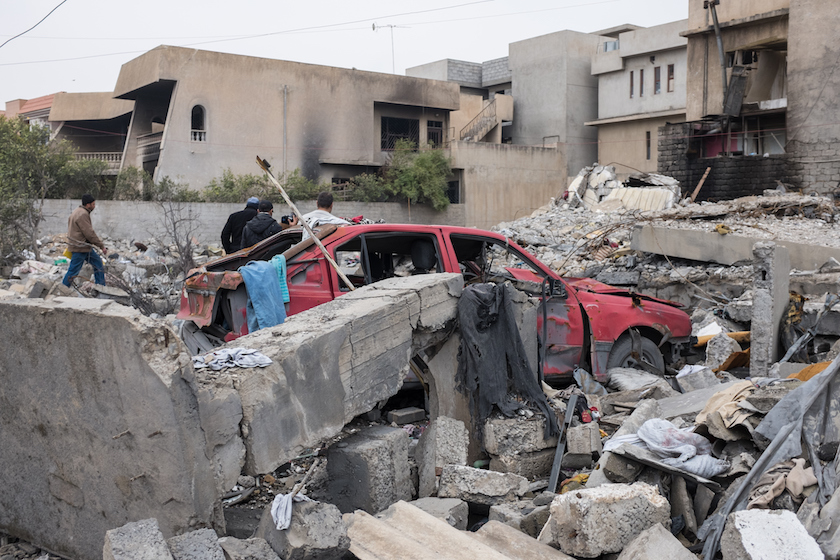
“The rocket hit the house and there were flames in the basement, fragments of building and dust; everyone hit the ground,” Abu Maad continues. “Afterwards it was pitch dark and the women and children started to cough, then shout. We began to check on the kids and we found that a couple had fractures and others had been burned.”
Shortly before the rocket hit, Abu Maad’s sister and his cousin had gone upstairs to fetch some supplies; his sister had her baby with her and everyone feared the worst for them. The families waited for some sort of assistance but none came. So Abu Maad says he decided to handle things himself and began to push the wreckage away from the cellar door.
“When I opened the door, I was shocked to see that there was no house anymore,” he recalls. “I began searching for my sister and my cousin and eventually I found them unconscious and bleeding. I ran out onto the street to ask the Iraqi soldiers for help. But they wouldn’t help. One of them told me to get back inside quickly—he was standing on the street, watching, the road with his gun out because he said ISIS fighters were still close by.”
Eventually, the trapped families made it out of the cellar and to a neighbor’s house. “But nobody helped us because the situation was still not safe,” Abu Maad says.
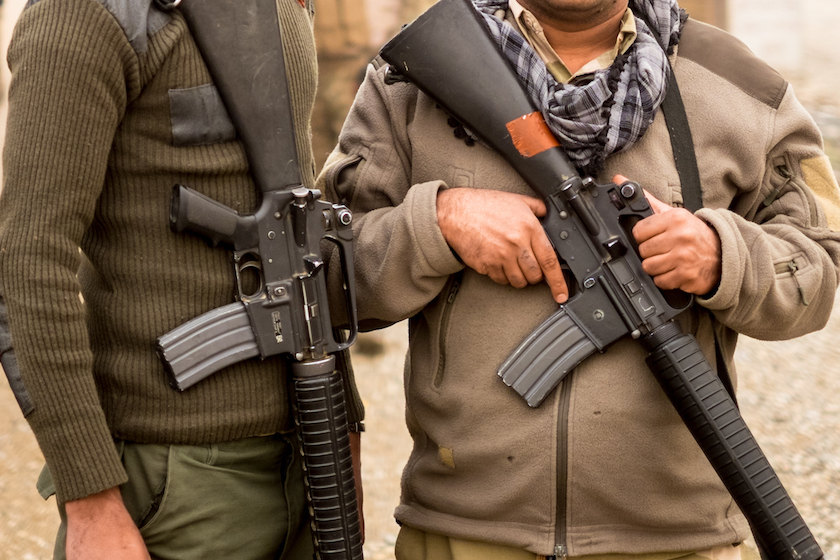
The family watched helplessly as three injured family members died from the wounds they had sustained in the bombing. Four others, who had been burned or had broken bones, cried all night. “They kept shouting out in pain—until coalition forces came with vehicles and were able to take them to Qayyarah Hospital,” he says.
Abu Maad and his family have remained in west Mosul, taking shelter at another house because the neighborhood is now (comparatively) secure again.
They have heard that conditions in the camps for the displaced are terrible so they want to try and stay here. But even while the family remains thankful that they survived, they have not yet returned to their home, the scene of that horrific night.
Abu Maad’s thoughts have already turned to how life can go on now that the family has lost its home. He remains angry at the fact that his house was unnecessarily bombed. And he is not the only one.
So many civilians are in west Mosul—thousands have fled but thousands have stayed—trapped and desperate, caught between coalition forces and desperate ISIS fighters.
This post originally appeared on Niqash. Names have been changed for privacy and security reasons.

